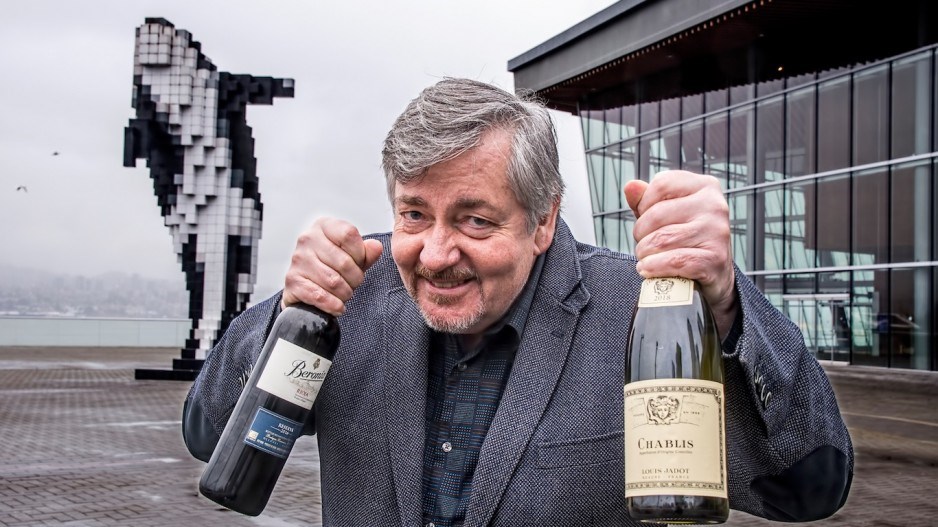With five of 27 events sold out, and tickets for large evening public tastings selling fast, the Vancouver International Wine Festival is readying to launch its 43rd incarnation starting May 16.
The seven-day extravaganza will be the city’s largest food and wine event to take place since the COVID-19 pandemic descended in spring 2020.
Organizers expect representatives from 100 wineries, based in 14 countries, to travel to Vancouver to pour at least four wines each. Most wineries will pour five wines, the festival’s executive director, Harry Hertscheg, told BIV.
Tickets will not be available for purchase at the events, and sales are likely to be cut off on May 13, he added.
The sold-out events this year include dinners at restaurants such as Five Sails Restaurant, Vij’s, Glowbal Restaurant and Cin Cin. A lunch at the Pacific Institute of Culinary Arts has also sold out.
The festival’s marquee event is the May 17 Bacchanalia Gala at the Fairmont Hotel Vancouver, where tickets are priced at $575 each. In addition to a silent auction at the gala, there will be an online auction leading up to the dinner.
All proceeds from this event and the rest of the festival go to the William Shakespeare festival Bard on the Beach, which is set to launch its 2022 season on June 8.
Capacity for the main public tastings at the Vancouver Convention Centre May 19, 20, and 21 has been chopped to between 1,000 and 1,250 people per night to allow more social distancing. Pre-pandemic, those events were usually capped at 2,500 people per night.
The festival itself has been scaled down, as pre-pandemic it had around 54 events.
“Just having the festival is a great thing to bring back to the community,” Hertscheg said.
He explained that he and his team decided to move the wine festival’s regular February timetable to May this year in part because of his hope that spring weather would help reduce COVID-19’s spread, leading to a more likely chance that governments would lift pandemic restrictions.
Dates for next year’s festival are similarly to be in the spring – April 24 through 30.
“We’re not quite ready to dive back into the wintertime,” Hertscheg said.
“Pandemic conditions tend to be more acute in the wintertime than in the spring.”
He added that supply-chain constraints that have arisen during the pandemic are more acute in the winter.
Wineries around the world earmark as much of their supplies as they can for lucrative holiday-season sales, and owners can find it a challenge to also ship sufficient product in the December-January time period to be set aside for a February wine festival, Hertscheg said.
There is no theme region this year, but the country with the most wineries is Canada. That includes a strong contingent of B.C. wineries.
The theme region next year is likely to be Argentina and Chile, Hertscheg said.




